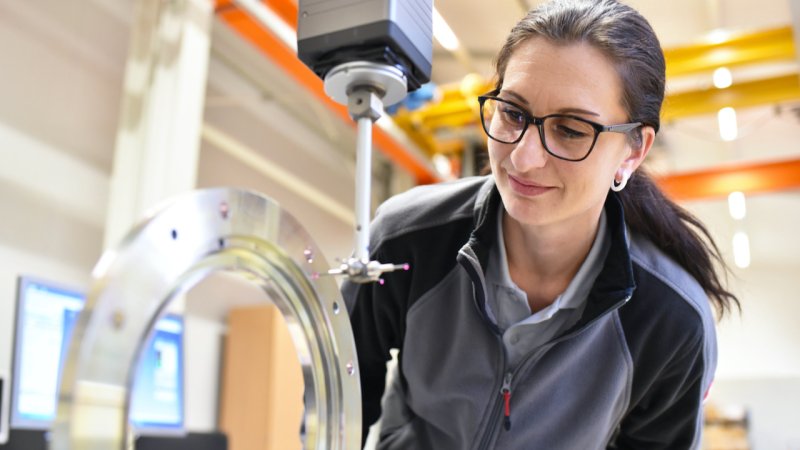Changing Residence Title and Purpose of Stay
The new regulations of the Skilled Immigration Act introduce concepts known as "change of purpose" („Zweckwechsel“) and "track change" („Spurwechsel“). When you enter Germany, your stay is always subject to specific conditions. For instance, you need a visa or can apply for asylum if necessary. A visa is always tied to a particular purpose, an entry reason. Generally, you receive your residence permit only for this specific purpose. If you wish to change your type of stay in Germany, this is referred to as a change of purpose („Zweckwechsel“). In such cases, you are often required to undergo the visa process again.
There are various possibilities and restrictions. A notable exception exists for those entering due to asylum, known as a track change („Spurwechsel“). Previously, there was a strict restriction against switching the type of stay after entry due to asylum. The new laws now aim to allow qualifying asylum seekers to transition into the labour market, particularly as skilled workers. To do so, the asylum application must be withdrawn first. Whether this is advisable depends on your individual case. Here you can learn more about "change of purpose" („Zweckwechsel“) and "track change" („Spurwechsel“).
EU Blue Card
The EU Blue Card is similar to the American Green Card. It is a special form of residence permit for those who want to work as qualified professionals in Germany. You can apply for an EU Blue Card whether you are already in Germany or still abroad in another EU country or a so-called "third country". You can find out how to apply in section "Where can I apply for an EU Blue Card?" below.
The new EU Blue Card: From November 18, 2023, the immigration options with EU Blue Card are partially expanded. The requirements are regulated in Sections 18, 18b, 18c, 18g and 19g of the Residence Act, which are based on the EU Directive 2021/1883.
The EU Blue Card offers the opportunity to apply for a national residence permit in accordance with Section 18g Residence Act. It can be a great option for academic professionals, experienced IT specialists without a university degree and graduates of so-called "tertiary education programmes".
Advantages of the new EU Blue Card: More occupational groups are taken into account and the minimum salary thresholds have been lowered. German language skills no longer need to be proven in order to apply for an EU Blue Card. This also applies to the reunification of spouses. Easier access to permanent residence (Settlement Permit according to § 18c para. 2 Residence Act) is also significant: residence periods are much shorter and employment is subject to social security contributions. In addition, the language requirements for applying for permanent residence have been significantly lowered (A1 is sufficient).
Important: The new EU Blue Card regulations require quite an adjustment within German bureaucracy. Therefore, the process may be slightly delayed.
Please note: An EU Blue Card can be applied for in all EU Member States except Denmark, and Ireland. However, the preconditions, such as the amount of the minimum annual salary, differ from country to country.
*The information on this page has been reviewed and verified by our consulting lawyer Astrid Meyerhöfer.
Visa and residence permit for the recognition of professional qualifications
Recognition of foreign qualifications enables those who have completed their training abroad to work in their profession in Germany. The recognition process takes place at the so-called "recognition offices "("Anerkennungsstelle"). However, foreign qualifications occasionally do not meet all the necessary criteria for full recognition. When that is the case, you can attend a qualification programme in Germany, such as a technical training course or a job-related German course. To participate in qualification programmes in Germany, you need a corresponding entry visa and must later apply for a residence permit in accordance with §16d Residence Act in Germany.
Good to know: If you would like to have your qualifications recognised in order to work in Germany, you can also apply for a residence permit in accordance with Section 16d (3) Residence Act. To do so, you must prove the job in question is a qualified job. (There are individual exceptions or exemptions for church work or care-related professions).
You can also obtain a residence permit if you wish to undergo a so-called “Qualifikationsanalyse” (qualification analysis) or take part in an examination in Germany. This type of residence permit is issued for a maximum of 6 months. You will usually also need A2 (CEFR) language skills, depending on your qualifications. In addition, you must be able to prove that you have already been invited to a ‘qualification analysis’.
Visa for Jobseekers
Many companies in Germany are looking for skilled workers. With a sought-after professional qualification, you can come to Germany to work and live here. But finding a job from abroad is often a challenge. That is why according to section 20 of the Residence Act, you can obtain a visa or a residence permit for job hunting in Germany. This way, you can enter Germany legally and then look for a suitable job on-site.
Visa for Research Work
Germany has numerous significant research institutes. If you want to come to Germany to work as a researcher from outside the EU, you need a visa or a residence permit for the purpose of research according to §18d Residence Act.
Visa for Seeking a Vocational Training or University Programme
Accomplishing in a vocational training or university programme in Germany can offer you many future opportunities. Finding a vocational training position or a spot in a university from abroad, however, could be quite a challenge. That is why according to §17 Residence Act, you can obtain a visa or residence permit to stay in Germany and search for a training position or a spot in a university here. This way, you can enter Germany with the respective visa, obtain a residence permit according to § 17, and then look for a suitable training position or a spot in a university programme on-site. Here, you can learn about the requirements you have to meet in order to obtain such a visa or residence permit to search for a training or university spot.
Overview of the changes to Section 17 Residence Act from March 2024:
- Maximum age for applying for a residence permit will be increased to 35
- The required German language skills will be lowered from B2 to level B1
- Duration of the residence permit increased to 9 months
- You can work a part-time job for 20 hours per week and go on probationary employment of up to 2 weeks.
- A so-called „change of purpose“ or “Zweckwechsel” is possible without having to repeat the visa procedure, i.e. you can switch to another qualified occupation (in accordance with §§ 16 a, b, 19 c Para. 2 and § 18 a, b and g Residence Act).
*The information has been checked by lawyer Astrid Meyerhöfer.
Visa for Self-Employment
A lot of people dream of starting their very own business or working independently as self-employed. If you would like to come to Germany to do so, you will need a visa or a residence permit for self-employment.
Visa for Skilled Workers
Germany needs skilled workers. If you wish to come to Germany to work as a skilled worker, you will need to obtain a corresponding residence permit, i.e., a "residence permit for qualified employment", regulated in §18a and §18b, paragraph 1 of the Residence Act. However, for many non-EU citizens, the first step is to apply for a corresponding visa. The visa allows you to enter Germany, obtain a residence permit to work as a skilled worker and start working. Here you can learn which requirements you have to meet for a visa and residence permit as a skilled worker.
- The information on this page has been reviewed and verified by our consulting lawyer, Astrid Meyerhöfer.
Visa for University Education
Germany has many outstanding colleges and universities and numerous international students. To come to Germany to study, you will need a corresponding residence permit, i.e., a "residence permit for the purpose of studying" ("Aufenthaltserlaubnis zum Zweck des Studiums") regulated in Section 16b of the Residence Act. If you come from a so-called "third countries", however, you first need to apply for a "Visa for the purpose of studying". A student visa allows you to enter Germany legally and start your studies.
However, this does not apply to EU citizens. As an EU citizen, you can study anywhere in Europe within the framework of European freedom of movement via certain university programmes such as Erasmus, etc.
*The information on this page has been verified by our consulting lawyer, Astrid Meyerhöfer.
Visa for Vocational Training
Vocational training programmes in Germany can offer great opportunities for a successful career. To come to Germany and take part in a vocational training programme, you will need a corresponding residence permit, i.e., "residence permit for the purpose of training" ("Aufenthaltserlaubnis zum Zweck der Ausbildung"), as per Section 16a of the Residence Act, which will come into force in March 2024. For many people from the so-called third countries (countries outside the EU), however, the first step is to apply for a "visa for the purpose of vocational training". A vocational training visa allows you to enter Germany legally and then start your training programme. Here you can learn about requirements you have to meet for a visa or residence permit as a trainee.
*The information on this page has been reviewed and verified by lawyer Astrid Meyerhöfer.
“Opportunity Card” for Jobseekers
“Chancenkarte” or the Opportunity Card (as per §20a, b Residence Act) will be available from June 2024. Qualified professionals will thus have the opportunity to obtain a stay permit to look for a job in Germany. To obtain an Opportunity Card, you must meet certain requirements. Below, you can find what you need to consider.
*This information on this page has been reviewed and verified by our consulting lawyer Astrid Meyerhöfer.










